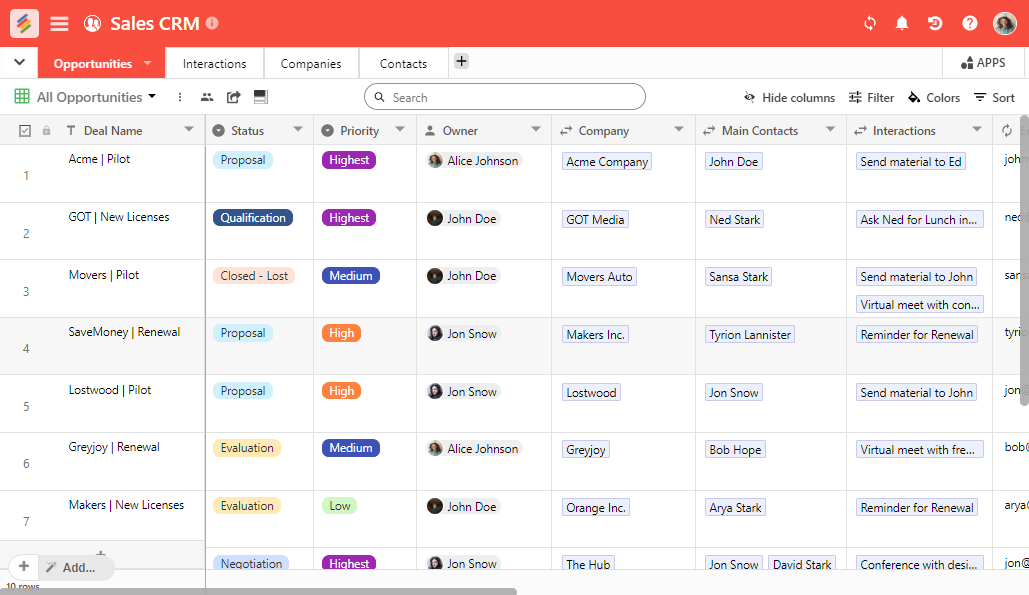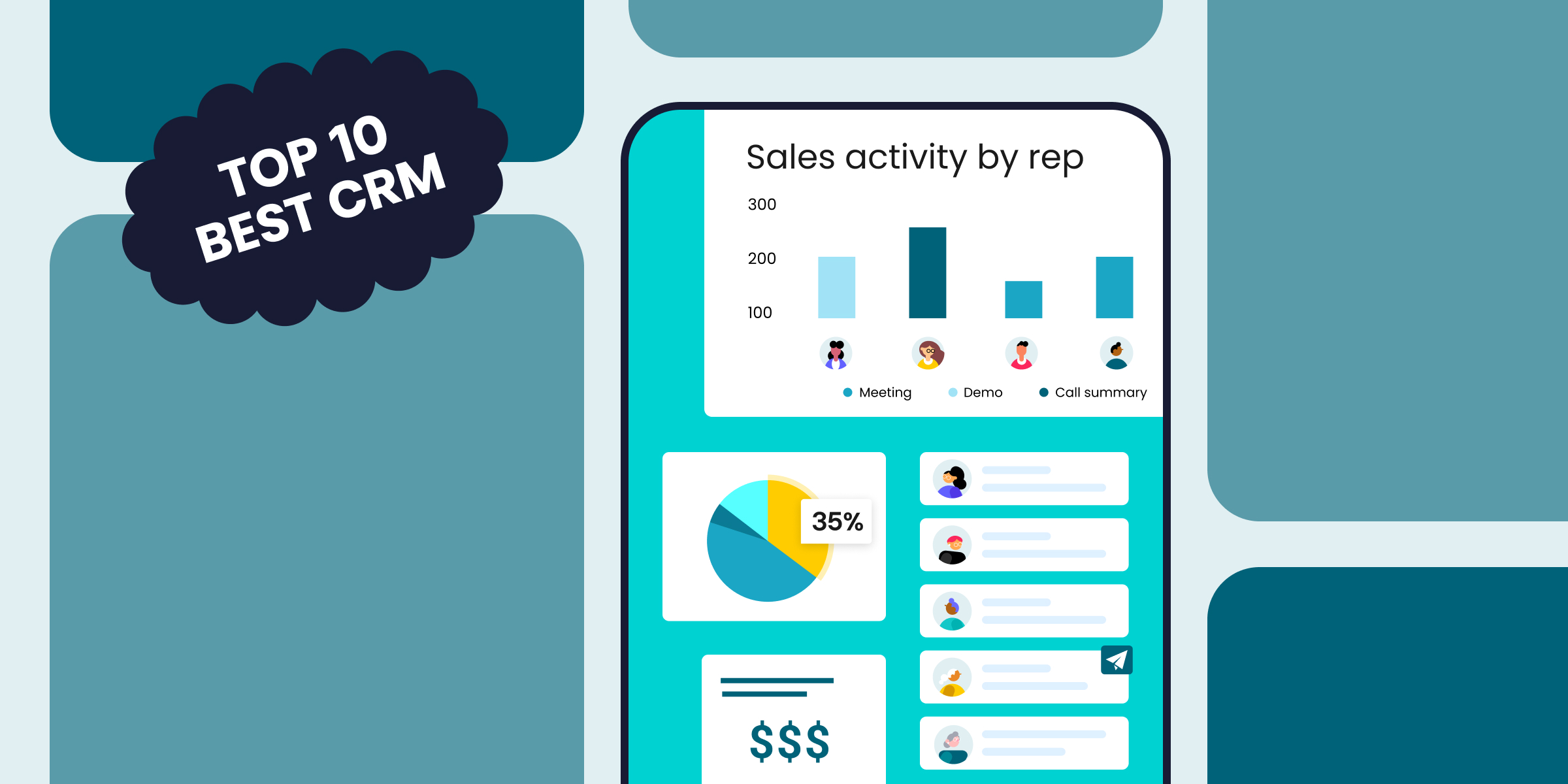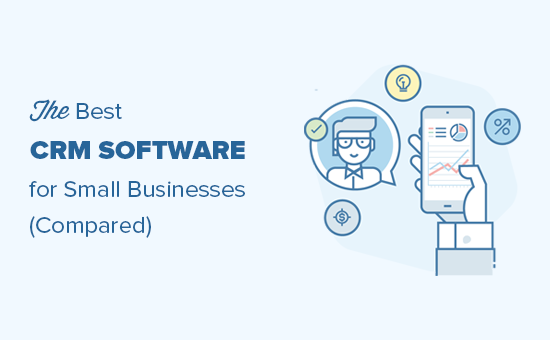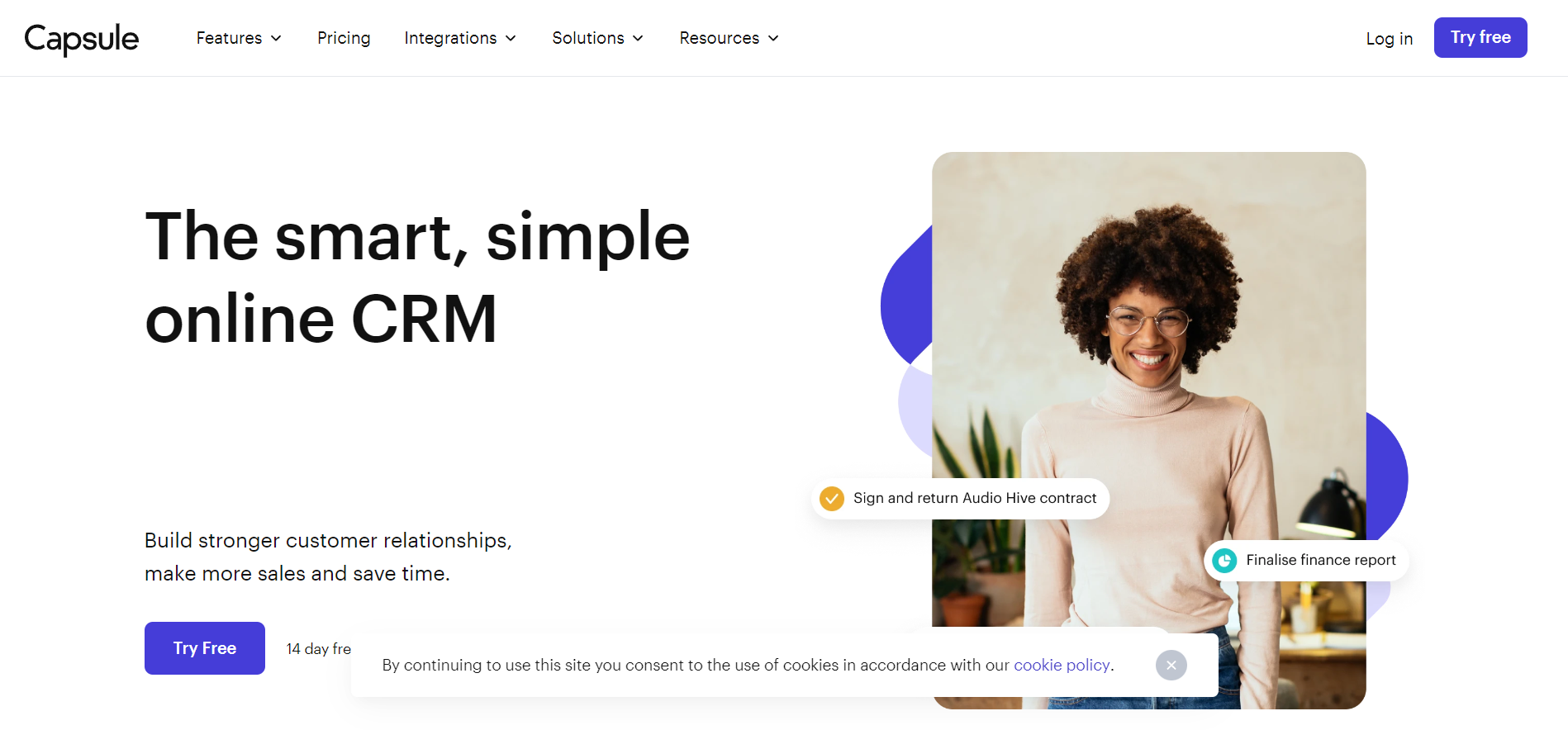Level Up Your Fitness Business: The Ultimate CRM Guide for Small Fitness Trainers

Level Up Your Fitness Business: The Ultimate CRM Guide for Small Fitness Trainers
So, you’re a small fitness trainer, hustling every day to help people achieve their health and wellness goals. You’re passionate about fitness, dedicated to your clients, and probably juggling a million things at once – scheduling sessions, tracking progress, managing payments, and trying to drum up new business. Sound familiar? If it does, you’re in the right place. This guide is all about how the right CRM (Customer Relationship Management) system can be your secret weapon, streamlining your operations and giving you more time to focus on what you love: training.
Choosing the right CRM can feel overwhelming. There’s a sea of options out there, each promising to be the ultimate solution. But don’t worry, we’ll break it down. We’ll explore the best CRM options tailored specifically for small fitness trainers, considering their unique needs and budget constraints. We’ll cover everything from the core features you absolutely need to the advanced functionalities that can take your business to the next level. By the end of this guide, you’ll be equipped to choose the perfect CRM to boost your productivity, improve client relationships, and ultimately, grow your fitness business.
Why Do Small Fitness Trainers Need a CRM?
You might be thinking, “I’m a small operation. Do I really need a CRM?” The answer, in most cases, is a resounding YES! Here’s why:
- Client Organization: Imagine having all your client information – contact details, training history, progress notes, payment records – all in one centralized, easily accessible place. A CRM does exactly that, eliminating the chaos of scattered spreadsheets, sticky notes, and email threads.
- Improved Communication: A CRM allows you to segment your clients and send targeted communications. Want to send a reminder about an upcoming session? Easy. Want to offer a special promotion to your loyal clients? Done. Consistent and personalized communication builds stronger relationships and keeps clients engaged.
- Appointment Scheduling & Management: Juggling appointments can be a nightmare. A CRM with scheduling features simplifies this process, allowing clients to book sessions online, sending automated reminders, and preventing double-bookings.
- Payment Processing: Many CRMs integrate with payment gateways, making it easy to invoice clients, track payments, and even set up recurring billing. This saves you time and reduces the hassle of chasing payments.
- Lead Generation & Management: CRM systems can help you capture leads from your website or social media, track their interactions, and nurture them through the sales process. This helps you convert prospects into paying clients.
- Data-Driven Insights: A CRM provides valuable data about your business, such as client demographics, popular services, and revenue trends. This information helps you make informed decisions about your marketing, pricing, and service offerings.
In short, a CRM isn’t just a fancy piece of software; it’s an investment in your business’s future. It frees up your time, reduces administrative burdens, and empowers you to focus on what matters most: helping your clients achieve their fitness goals.
Key Features to Look for in a CRM for Fitness Trainers
Not all CRMs are created equal. When choosing a CRM for your fitness business, look for these essential features:
1. Client Management
This is the heart of any CRM. It should allow you to:
- Store client information: Name, contact details, emergency contacts, health history, fitness goals, etc.
- Track client interactions: Notes from sessions, communication history, appointment history.
- Segment clients: Group clients based on demographics, goals, or services purchased.
- Upload documents: Store waivers, assessments, and other important documents securely.
2. Scheduling and Appointment Management
This feature is crucial for streamlining your schedule. Look for a CRM that offers:
- Online booking: Allow clients to book appointments directly from your website or a dedicated client portal.
- Calendar integration: Sync with your existing calendar (Google Calendar, Outlook, etc.).
- Automated reminders: Send appointment reminders via email or SMS to reduce no-shows.
- Availability management: Easily manage your availability and block out time for personal training or other commitments.
3. Communication Tools
Effective communication is key to building strong client relationships. A good CRM should offer:
- Email marketing: Send newsletters, promotions, and other marketing emails to your clients.
- SMS messaging: Send appointment reminders, updates, and personalized messages.
- Client portal: A secure online portal where clients can access their information, book appointments, and communicate with you.
- Integration with communication platforms: (e.g., Zoom, Skype) for virtual training sessions.
4. Payment Processing
Simplify your billing process with a CRM that integrates with payment gateways. Look for features such as:
- Invoicing: Create and send professional invoices.
- Payment tracking: Track payments and manage outstanding balances.
- Recurring billing: Set up automatic payments for memberships or packages.
- Integration with payment gateways: (e.g., Stripe, PayPal) for secure online payments.
5. Reporting and Analytics
Gain valuable insights into your business performance with a CRM that offers reporting and analytics features. Look for:
- Sales reports: Track revenue, sales trends, and top-selling services.
- Client reports: Track client demographics, retention rates, and client lifetime value.
- Appointment reports: Track appointment bookings, no-show rates, and trainer performance.
- Customizable dashboards: Create dashboards that display the key metrics that matter most to your business.
6. Integrations
Consider how well the CRM integrates with other tools you use, such as:
- Website builders: (e.g., WordPress, Wix) for easy integration with your website.
- Social media platforms: (e.g., Facebook, Instagram) for lead generation and marketing.
- Email marketing platforms: (e.g., Mailchimp, Constant Contact) for advanced email marketing campaigns.
- Other fitness apps: (e.g., MyFitnessPal, Trainerize) for tracking client progress.
Top CRM Options for Small Fitness Trainers
Now that you know what to look for, let’s dive into some of the best CRM options specifically designed for small fitness trainers. We’ll consider their features, pricing, and ease of use to help you make an informed decision.
1. Trainerize
Overview: Trainerize is a comprehensive fitness training platform that also includes robust CRM capabilities. It’s designed specifically for personal trainers and fitness professionals, making it a strong contender for your business.
Key Features:
- Client Management: Comprehensive client profiles, progress tracking, and communication tools.
- Training Programs: Create and deliver custom workout programs and meal plans.
- Appointment Scheduling: Built-in scheduling system with online booking.
- Payment Processing: Integrated payment processing with Stripe and PayPal.
- Mobile App: Clients have access to their programs and communication through a dedicated mobile app.
- Integrations: Integrates with a wide range of fitness apps and wearables.
Pricing: Trainerize offers a variety of pricing plans based on the number of clients. They usually offer a free trial, allowing you to test the platform before committing. It is generally a subscription-based model.
Pros:
- Specifically designed for fitness professionals.
- Offers a complete suite of tools for training, client management, and communication.
- Excellent mobile app for clients.
- Strong integrations with other fitness apps.
Cons:
- Can be more expensive than some other CRM options.
- May have a steeper learning curve for beginners.
2. WellnessLiving
Overview: WellnessLiving is an all-in-one business management software that caters to fitness studios, gyms, and wellness businesses. It offers a CRM solution that combines client management with scheduling, payment processing, and marketing tools.
Key Features:
- Client Management: Detailed client profiles, communication logs, and progress tracking.
- Appointment Scheduling: Online booking, automated reminders, and staff scheduling.
- Payment Processing: Integrated payment processing, membership management, and automated billing.
- Marketing Tools: Email marketing, SMS marketing, and social media integration.
- Reporting and Analytics: Track key business metrics.
- Mobile App: Client and staff mobile apps.
Pricing: WellnessLiving offers a tiered pricing structure based on the features you need and the size of your business. They often provide free trials.
Pros:
- Comprehensive suite of features for managing your entire business.
- User-friendly interface.
- Strong marketing and automation features.
Cons:
- Can be more expensive than some other options, particularly for smaller businesses.
- May have a broader feature set than some fitness trainers need.
3. Mindbody
Overview: Mindbody is a well-known platform in the fitness and wellness industry, offering a comprehensive business management solution that includes CRM capabilities. It’s a great option for businesses that want a complete system for scheduling, client management, and payment processing.
Key Features:
- Client Management: Client profiles, communication tracking, and progress tracking.
- Appointment Scheduling: Online booking, class scheduling, and automated reminders.
- Payment Processing: Integrated payment processing, membership management, and automated billing.
- Marketing Tools: Email marketing, promotions, and social media integration.
- Reporting and Analytics: Track key business metrics.
- Online Store: Sell products and services through an online store.
Pricing: Mindbody offers a range of pricing plans based on the size and needs of your business. They often have different tiers based on the number of staff and clients.
Pros:
- Widely used and trusted platform in the fitness industry.
- Comprehensive suite of features.
- Strong scheduling and payment processing capabilities.
- Integration with Mindbody Marketplace.
Cons:
- Can be expensive, especially for smaller businesses.
- Interface can be overwhelming for beginners.
4. Acuity Scheduling (Now Squarespace Scheduling)
Overview: Acuity Scheduling, now Squarespace Scheduling, is a more affordable and user-friendly option, focusing primarily on scheduling and client management. It’s a good choice if you prioritize ease of use and a simpler feature set.
Key Features:
- Appointment Scheduling: Online booking, calendar sync, and automated reminders.
- Client Management: Client profiles and communication tracking.
- Payment Processing: Integrated payment processing with Stripe and PayPal.
- Customization: Customize your booking page and emails.
- Integrations: Integrates with various calendar apps, payment processors, and email marketing platforms.
Pricing: Squarespace Scheduling offers several pricing plans based on the number of staff and features. They often have free trials.
Pros:
- Easy to use and set up.
- Affordable pricing.
- Excellent scheduling features.
- Clean and professional interface.
Cons:
- Fewer features compared to more comprehensive CRM systems.
- May not be suitable for businesses that need advanced marketing or reporting capabilities.
5. Simplero
Overview: Simplero is a more budget-friendly option, offering a blend of CRM, email marketing, and course creation tools. It’s a good fit for trainers who also offer online courses or programs.
Key Features:
- Client Management: Contact management and communication.
- Email Marketing: Create and send email campaigns.
- Course Creation: Build and sell online courses.
- Payment Processing: Integrated payment processing.
- Affiliate Marketing: Manage affiliate programs.
Pricing: Simplero offers a variety of pricing plans based on the number of contacts and features. It is generally a subscription-based model.
Pros:
- Affordable pricing.
- Combines CRM with email marketing and course creation tools.
- Easy to use interface.
Cons:
- Fewer advanced features compared to dedicated CRM systems.
- May not be as robust for client management.
Choosing the Right CRM: A Step-by-Step Guide
Now that you’re familiar with some of the top CRM options, how do you choose the right one for your fitness business? Here’s a step-by-step guide to help you make the best decision:
1. Assess Your Needs
Before you start comparing CRM systems, take some time to evaluate your specific needs. Ask yourself:
- What are my biggest pain points? What tasks take up the most of your time? What areas of your business need improvement?
- What features are essential? Make a list of the features you absolutely need (client management, scheduling, payment processing, etc.).
- What is my budget? Determine how much you’re willing to spend on a CRM system.
- How many clients do I have? The number of clients you have will affect the pricing tiers of some CRM systems.
- What integrations do I need? Consider the other tools you use (website builder, email marketing platform, etc.) and make sure the CRM integrates with them.
2. Research and Compare Options
Once you have a clear understanding of your needs, it’s time to research and compare different CRM options. Visit the websites of the CRM providers we discussed above and explore their features and pricing. Also, read online reviews and case studies to get a better sense of what other fitness trainers think of each platform. Be sure to look at:
- Features: Does the CRM offer the features you need?
- Pricing: Is the pricing affordable and suitable for your budget?
- Ease of use: Is the interface user-friendly and easy to navigate?
- Customer support: Does the CRM provider offer good customer support?
- Reviews: What do other users say about the CRM?
3. Take Advantage of Free Trials and Demos
Most CRM providers offer free trials or demos. Take advantage of these opportunities to test out the platform and see if it’s a good fit for your business. During the trial or demo, try out the features you need most and see how easy it is to use the system. This is a great way to get a hands-on feel for the software.
4. Consider Your Long-Term Goals
Don’t just choose a CRM based on your current needs. Consider your long-term goals for your fitness business. Do you plan to expand your services, hire staff, or offer online courses? Choose a CRM that can grow with your business and adapt to your changing needs.
5. Make a Decision and Get Started
Once you’ve done your research, tested out the options, and considered your goals, it’s time to make a decision. Choose the CRM that best meets your needs and budget, and that you feel comfortable using. Once you’ve chosen your CRM, take the time to set it up properly. Import your existing client data, customize the settings, and train yourself and your staff on how to use the system. The initial setup may take some time, but it will pay off in the long run.
Tips for Successfully Implementing a CRM
Choosing the right CRM is just the first step. To get the most out of your new system, follow these tips for successful implementation:
- Data Migration: Carefully import your existing client data into the CRM. Ensure the data is accurate and organized.
- Training: Take the time to learn how to use all the features of the CRM. Watch tutorials, read the documentation, and attend webinars. If you have staff, provide them with adequate training as well.
- Customization: Customize the CRM to match your business’s branding and processes. Set up your client profiles, email templates, and booking pages.
- Integration: Integrate the CRM with other tools you use, such as your website, email marketing platform, and payment processor.
- Communication: Communicate with your clients about the new system. Let them know how it will benefit them and how to use the client portal.
- Consistency: Use the CRM consistently. Make it a habit to update client information, schedule appointments, and communicate with your clients through the system.
- Review and Optimize: Regularly review your CRM usage and make adjustments as needed. Identify areas where you can improve your processes and optimize your workflows.
The Bottom Line: Embrace the Power of CRM
Running a successful fitness business is challenging, but the right tools can make a world of difference. A CRM system is a powerful tool that can streamline your operations, improve client relationships, and ultimately, help you grow your business. By choosing the right CRM and implementing it effectively, you can free up your time, reduce administrative burdens, and focus on what you do best: helping your clients achieve their fitness goals.
Don’t let the complexities of running a business hold you back. Embrace the power of a CRM and take your fitness business to the next level. The investment in a good CRM will provide you with a great return. You’ll be able to manage your clients more efficiently, communicate with them effectively, and ultimately, build a thriving fitness business. Take the first step today and start exploring the CRM options that are right for you. Your future clients (and your sanity) will thank you!





